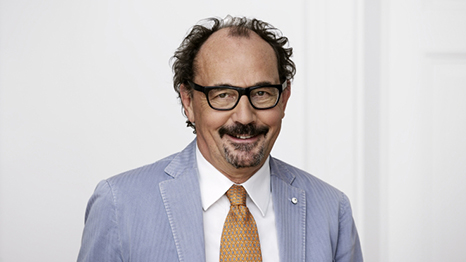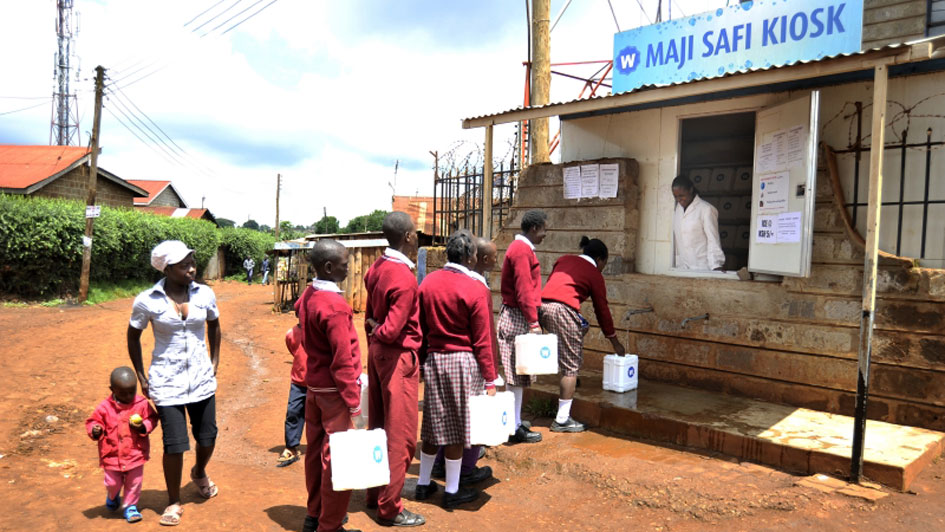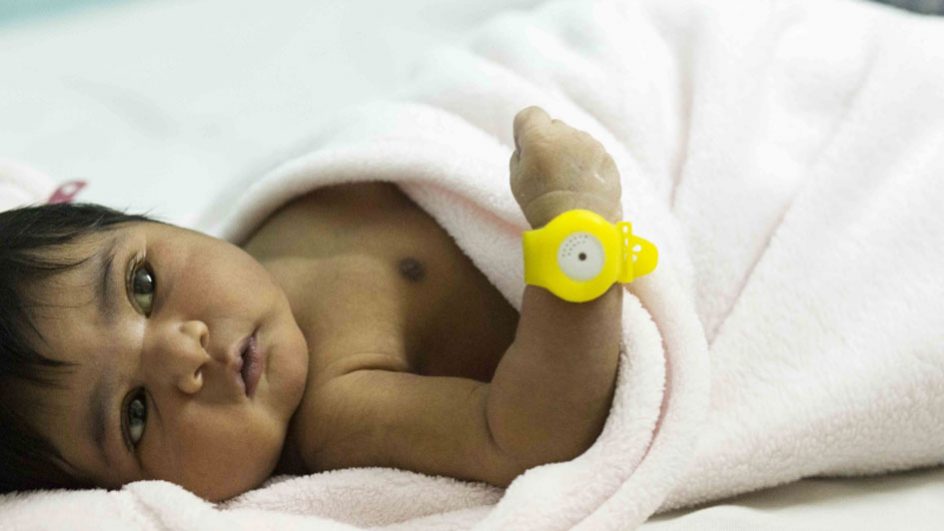
»Appropriate technologies are key to solutions for very remote and fragile areas where little or nothing in terms of basic infrastructure exists.«
Finding the right technical solutions for the challenge
In the current time that we all live in whilst some of the development, challenges have been addressed along the way, new ones raise their heads. For most of the development challenges, technical solutions exist but how do we find the right one for the right place?
Rolf Huber, Managing Director Siemens Stiftung talks about the challenges at hand and how creating an impact for sustainable development needs to bring together a suitable technology, a functioning organisational model and a community approach.
Siemens Stiftung provides low-tech solutions like water pumps that have been in use for ages. Taking into consideration how digital technologies have facilitated huge transformation in most areas are these solutions contemporary enough?
Yes, I think so! Our work is to help provide basic solutions that address basic amenities like drinking water, sanitation, healthcare, waste management, energy access and education. Digital applications can do many things but they cannot actually purify water or provide sanitation facilities. Our focus is in the area of low-tech where we work in very remote and fragile areas where very little or nothing in terms of these basic facilities exist and in most cases actual hardware needs to be established. Having said this, through our empowering people. Network, we do support innovations that combine both aspects including digital technologies like Fintech. Our solutions include monitoring apps or SMS services which facilitate access to health and safety, satellite or intelligent information systems in the agricultural context. So my best guess is we will need both – hardware solutions to improve access to basic services for everyone along with digital solutions that can make a great difference to improve information and communication that is equally crucial to enhance monitoring remote diagnostic systems or to gather better intelligence for agricultural and nutritional purposes.
Working with innovators and start-ups what are some of the challenges that you face in order to ensure that the solutions are sustainable?
We work with a lot of small groups, social enterprises, start-ups who are often not well established. It fits our spirit as a charity to empower them by transferring our expertise, experience and technical know-how to facilitate them in becoming a serious player in that field. And here comes our challenge – since these partners are not fully operational our ride with them is full of hurdles. The good thing is that we learn from each road-block! Since we are looking at basic solutions, providers who are often smart engineers, inventors. They are habitually siloed in their approach, aiming at improving the product, it’s efficiency and manufacturing rather than its implementation. They sometimes lose focus on tertiary elements like financial development, human resources and the social setting. This is why we empower them in particular with expertise in the areas of organziational development or through the support of the network in terms of best practice or experteering. We do this in an effort to ensure sustainability of the undertaking.
How do you think a European foundation’s involvement in remote areas of Latin America, Asia and Africa is effective?
We are not providing the solutions alone! We work with organizations and people around the world – who are improving living conditions in their regions and their work is aligned with ours. The nature of the intervention is diverse – from supporting entrepreneurs across the world with the expert program embedded in our empowering people. Network to directly working with a waste management company in Nairobi. The vital aspect here is that none of this would be possible without our strong partners spread across the length and breadth of the globe. What we have learned from our operational work and working hand-in-hand with our Kenyan team, that we really need to stick to the same locality and deepen the positive impact for the local communities instead of turning to scale models too quickly.
Some of the issues you are working on, such as the provision of drinking water through your Safe Water Enterprises, may fall under the scope of ‘public good’. What can be the foundation’s role in this context?
We are working in regions where there might be a delicate environment but there has to be some semblance of a governmental structure. If we are working with a community in need of clean of drinking water this may fall under the category of public service. Our intervention here would be is to align and improvise with the current abridged facilities. With the SWE project, for example we examine the location, political situation and speak to the local authorities. Our goal is to get a license and be compliant with government rules and regulations. We have to have them on board to accomplish holistic results.

Let me give you an example: Recently the Kenyan Water Ministry has issued an act where they would like to coordinate all water assets within their administrative responsibility. We are in a dialog with them to ensure the sustainability of the water structures we have established. In Kwale, at the Kenyan coast side, the local authorities are so convinced about our Safe Water Enterprise model that they would like to integrate the same model in their structures. This is, of course, the best of all outcomes, when we can provide solutions that work and then subsequently public structures take them and replicate them within their system.
As a foreign foundation do you face resistance from local authorities?
There is a lot of attention from the civic authorities because there might be other players in the foray who want to jump into the project for self-interest or commercial purpose. Therefore we like sceptical authorities around us who have many questions and demand a clear picture of our ventures. If it is smooth sailing in the beginning and at a later stage the authorities demand money from us then we can’t work with them. We cannot yield to corruption.
Taking your experience into consideration – what would you do differently now?
The will and the vision of a community are key in order to initiate any kind of sustainable development. Also in the past, we have placed too much importance in getting to know a community, with our, main focus used to be identifying the needs of a community and match those with what we have to offer in terms of technical solutions and training expertise. Experience shows that focusing on the assets of a community is the more efficient way to do it. We now identify if there are existing groups who are eager to facilitate change for a community. What are their ideas to fix the issues or challenges they face? We then engage on this level without a fixed pattern to do things. Since we want to develop this approach further, we also are engaging with MIT in a case study in Colombia on Co-Creation where we seek to apply the findings on the ground in our daily work.
April 2019



